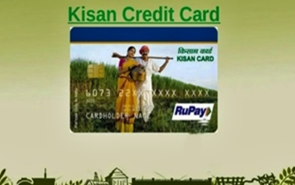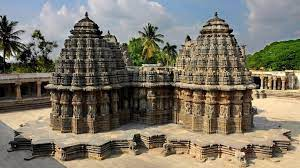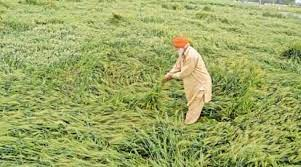Daily News Analysis.
Kisan Rin Portal and Door-to-Door Kisan Credit Card Campaign to be launched in New Delhi
News: The government will introduce a slew of innovative programmes aimed at revolutionizing agriculture throughout the nation in New Delhi. The transformative projects include the Weather Information Network Data Systems (WINDS) Manual, the Door to Door KCC Campaign, and the Kisan Rin Portal (KRP).
- To increase financial inclusion, streamline data utilization, leverage technology, and improve the agricultural community’s quality of life.
- Wellbeing of farmers would be the primary focus of these programmes, which will center on agri-credit and crop insurance.
- These initiatives and inventions will contribute to the country’s farming community’s objective of agricultural transformation and sustained economic growth.
Benefits of the initiative
- The Ghar Ghar Kisan Credit Card (KCC) Abhiyaan is a comprehensive initiative to make the KCC Scheme’s advantages available to every farmer in India
- This initiative seeks to ensure that every farmer has unrestricted access to credit resources in order to achieve universal financial inclusion.
- According to the Ministry, there are a total of 7.35 billion KCC accounts that are active as of March 2023, with a sanctioned limit of 8.85 trillion rupees.
- An important innovation is the Weather Information Network Data Systems (WINDS) initiative, which uses cutting-edge weather data analytics to give stakeholders useful weather information.
Karnataka’s hoysala temples on UNESCO World heritage list
News: Karnataka’s Hoysala temples, renowned for their exquisite architecture and intricate craftsmanship, have earned a well-deserved place on the UNESCO World Heritage list.
- These temples, dating back to the 12th century, are a testament to the artistic brilliance of the Hoysala Empire that once thrived in the region.
- Characterized by their unique star-shaped platforms, finely sculpted pillars, and intricate stone carvings depicting mythological stories, these temples showcase the pinnacle of Indian temple architecture.
- The most famous among them is the Chennakesava Temple in Belur, the Hoysaleswara Temple in Halebidu, and the Kesava Temple in Somnathpur.
- These temples stand as remarkable examples of the Vesara style of architecture, blending both Dravidian and Nagara architectural elements.
EPFO must carefully assess its obligations and be more transparent about investment decisions.
News: The Employees’ Provident Fund Organization (EPFO) plays a crucial role in safeguarding the financial interests of millions of workers in India. In doing so, it must exercise prudence and transparency in its investment decisions. It is imperative that EPFO carefully assess its obligations to ensure the long-term sustainability of retirement funds.
- Transparency in investment decisions is vital to maintain the trust of contributors and beneficiaries.
- EPFO should provide detailed information about its investment strategies, asset allocation, and performance outcomes regularly.
- This transparency can help stakeholders understand the risks and rewards associated with their investments.
- Furthermore, EPFO must prioritize responsible and sustainable investments, considering environmental, social, and governance (ESG) factors.
- Aligning investments with ESG principles not only reduces risks but also promotes ethical and sustainable practices.
Unified Portal For Agricultural Statistics
News: Recently, the UPAg Portal—the Unified Portal for Agricultural Statistics—began operations.
- By tackling challenging governance issues, this ground-breaking platform aims to revolutionize data management in India’s agriculture industry.
- With the use of the portal, stakeholders will be given access to timely, accurate, and consistent information that will enable more responsive and effective agricultural policies.
- The UPAg Portal tackles major issues with agriculture data, such as lack of standardization, verification, dispersion, and various update cycles.
- It provides customers with the freedom to create their own reports as well as data standardization, advanced analytics, detailed production estimations, and commodity profile reports.
- The UPAg Portal, which is a component of the Digital Public Infrastructure for Agriculture, focuses on using data to increase the sector’s transparency, adaptability, and growth in India.
- This project intends to improve data-driven decision-making for policymakers, academics, and stakeholders in the agriculture domain and is in line with e-governance concepts.







